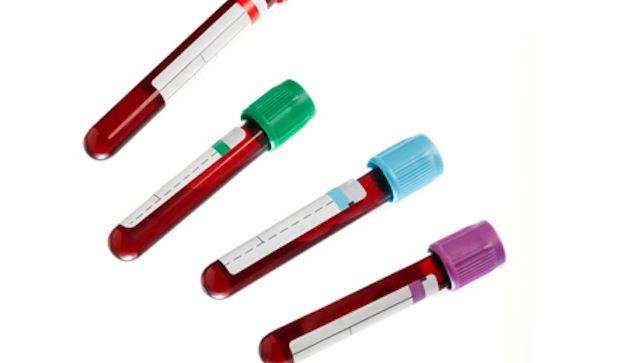Discover Exciting Career Opportunities: How to Land Jobs as a Phlebotomist in Healthcare
Introduction
Are you seeking a fulfilling and in-demand career in teh healthcare industry? If so, becoming a phlebotomist could be the perfect choice! Phlebotomists play a crucial role in medical diagnostics by collecting blood samples needed for laboratory testing. This profession offers a stable job market, competitive salary, and opportunities for growth. In this comprehensive guide, we will explore how to kickstart your journey as a phlebotomist, including essential skills, certification requirements, practical tips, and career advancement options.
What Is a Phlebotomist?
A phlebotomist is a healthcare professional trained to draw blood from patients for laboratory testing,transfusions,donations,or research.They work in various settings, such as hospitals, clinics, blood donation centers, and diagnostic laboratories. Their responsibilities include verifying patient identity, explaining procedures, collecting blood safely, and maintaining proper documentation.
The Growing Demand for Phlebotomists in Healthcare
The healthcare industry is rapidly expanding, and so is the need for skilled phlebotomists. Factors contributing to this demand include increased screening programs, chronic disease management, and advancements in diagnostic testing. According to the U.S. Bureau of Labour Statistics, employment of phlebotomists is projected to grow much faster than average in the coming decade, making it an excellent career choice for job security.
How to Start Your Career as a Phlebotomist
1. Meet Education and Skill Requirements
while some entry-level positions may except on-the-job training, most employers prefer certified phlebotomists. The basic requirements include:
- High school diploma or equivalent
- basic knowledge of medical terminology and anatomy
- Strong interpersonal and interaction skills
- Attention to detail and manual dexterity
2. Complete a Phlebotomy Training Program
Enroll in an accredited phlebotomy training program that offers comprehensive coursework covering venipuncture techniques, safety protocols, and patient interaction. Programs vary from short-term courses to extended certifications, available at community colleges or technical schools.
3. Obtain Certification
Certification enhances job prospects and demonstrates your professional competence. Popular certifying bodies include:
- American Society for clinical Pathology (ASCP)
- National Phlebotomy association (NPA)
- American Medical Certification Association (AMCA)
Requirements typically include completing a training program and passing an exam.
Practical Tips to Land Your First Job as a Phlebotomist
- Create a professional resume: Highlight your certification, training, and relevant skills.
- Gain hands-on experience: Volunteer or shadow experienced professionals.
- Apply broadly: Look for openings in hospitals, clinics, mobile blood drives, and labs.
- Prepare for interviews: Practice communicating clearly, handling patient concerns, and demonstrating expertise in blood collection.
Additional Resources
Join professional associations, attend workshops, and participate in online forums to stay updated on industry trends.
Benefits and Practical Tips
Pursuing a career as a phlebotomist offers numerous advantages:
- High job demand: Consistent employment opportunities in healthcare settings.
- Good earning potential: Competitive salaries that increase with experience and certifications.
- Flexible work hours: Opportunities for part-time, night shifts, or weekend work.
- Personal fulfillment: Making a difference in patients’ lives by contributing to diagnostics and health assessments.
Case Study: Success Story of a Certified Phlebotomist
| Name | Experience | current Role |
|---|---|---|
| Jane D. | 2 Years | Hospital Phlebotomist |
| John S. | 5 Years | Senior Phlebotomy Technician |
| Lisa M. | 1 Year | Mobile Blood drive Coordinator |
These stories highlight how obtaining certification and gaining practical experience can open doors to varied and rewarding opportunities within healthcare.
Critically important considerations & FAQs
What Is the Average Salary for a Phlebotomist?
The median annual salary in the U.S. is approximately $36,000, but this can vary based on experience, location, and work setting.
Is Certification Really Necessary?
While not all states mandate certification,it greatly improves employability and may be required by certain employers or health agencies.
can I Progress Beyond Phlebotomy?
Yes! Many professionals advance into roles like medical assisting, laboratory technician, or healthcare management with further education and experience.
Conclusion
Embarking on a career as a phlebotomist offers exciting and rewarding opportunities within the healthcare sector. whether you’re just starting out or seeking to expand your professional horizon, acquiring the proper training, certification, and practical experience are key steps to unlocking a successful career. With growing demand, competitive salaries, and meaningful work, becoming a phlebotomist is a practical choice for those passionate about making a difference in patients’ lives. Start your journey today, and discover the many possibilities that a healthcare career in phlebotomy can offer!
